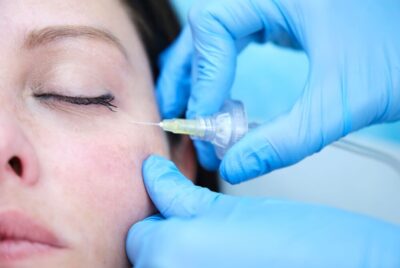Taking Care of Your Facial Skin: A Comprehensive Guide to Achieving Youthful and Healthy Skin
Introduction
Facial skin is one of the most delicate and exposed areas of our body, and it requires proper care and attention to maintain its health and youthfulness. Whether you’re new to skincare or looking to improve your routine, understanding the fundamentals and adopting effective practices can significantly enhance the appearance and health of your skin. This guide aims to provide you with essential steps and tips to embark on a journey towards youthful and radiant facial skin.
Establishing a Basic Skincare Routine
Cleansing: The Foundation of Your Routine
Cleansing is the first and crucial step in any skincare routine. It helps in removing dirt, excess oils, and impurities from your skin. Choose a gentle, pH-balanced cleanser suitable for your skin type. Cleansing your face twice a day, in the morning and evening, will ensure a clean canvas for other skincare products.
Moisturizing: Nourishing Your Skin
Moisturizing is essential to keep your skin hydrated and balanced. It helps in preventing dryness, irritation, and premature aging. Use a lightweight, non-comedogenic moisturizer that suits your skin type. Apply it after cleansing to lock in moisture and maintain a healthy skin barrier.
Targeted Treatments for Youthful Skin
Sunscreen: Shielding Your Skin from Damage
Sunscreen is a non-negotiable part of any skincare routine. It protects your skin from harmful UV rays, preventing sunburn, premature aging, and even skin cancer. Apply a broad-spectrum sunscreen with at least SPF 30 daily, even on cloudy days, and reapply every two hours if you’re spending time outdoors.
Anti-aging Serums: Fighting the Signs of Aging
Incorporate anti-aging serums into your routine to target specific concerns like fine lines, wrinkles, and uneven skin tone. Ingredients like retinoids, hyaluronic acid, and vitamin C can promote collagen production and rejuvenate your skin, helping it appear more youthful and radiant.
Nurturing Your Skin with a Healthy Lifestyle
Balanced Diet: Fueling Your Skin from Within
A well-balanced diet rich in fruits, vegetables, whole grains, and lean proteins provides essential nutrients for your skin’s health. Antioxidants and vitamins found in these foods help combat free radicals and promote a youthful complexion.
Hydration: Drinking Your Way to Glowing Skin
Proper hydration is key to maintaining a healthy and radiant complexion. Drink an adequate amount of water throughout the day to keep your skin hydrated and plump. Hydrated skin looks more youthful and vibrant.
Specialized Treatments for Optimal Results
Facials and Masks: Pampering Your Skin
Occasional facials and masks can provide a deeper level of care for your facial skin. Choose masks that address your specific concerns, whether it’s hydration, exfoliation, or pore refinement. Facials can help rejuvenate your skin and provide a relaxing, pampering experience.
Consult a Dermatologist: Professional Guidance for Your Skin
For personalized advice and targeted treatments, consider consulting a dermatologist. They can assess your skin’s unique needs and recommend professional treatments or prescribe specialized skincare products to enhance your skincare routine.
Conclusion
Achieving youthful and healthy facial skin requires a combination of a basic skincare routine, targeted treatments, a healthy lifestyle, and occasional specialized treatments. Consistency and choosing products suitable for your skin type and concerns are crucial aspects of successful skincare. Remember, a well-cared-for skin not only looks good but also boosts your confidence and overall well-being.
Frequently Asked Questions (FAQs)
FAQ 1: Can I use the same skincare products day and night?
It’s generally recommended to use different products for the day and night. Daytime skincare focuses on protection and hydration, including sunscreen, while nighttime skincare emphasizes repair and rejuvenation. Tailor your routine accordingly for optimal results.
FAQ 2: How long does it take to see results from a new skincare routine?
Results vary based on individual factors and the products used. Generally, you may start noticing improvements in your skin’s texture and appearance within 4 to 6 weeks of consistent use. Patience and consistency are key to seeing the best results.
FAQ 3: Can oily skin benefit from moisturizing?
Absolutely. Even oily skin needs moisture to maintain its balance. Opt for oil-free, non-comedogenic moisturizers that won’t clog pores. Proper hydration can actually help regulate oil production and keep your skin healthy.
FAQ 4: What should I do if a product irritates my skin?
If a product causes irritation or an allergic reaction, stop using it immediately. Wash your face gently with a mild cleanser and apply a soothing, fragrance-free moisturizer. If the irritation persists or worsens, consult a dermatologist.
FAQ 5: How can I address dark spots and hyperpigmentation on my face?
To address dark spots and hyperpigmentation, consider incorporating products with ingredients like vitamin C, niacinamide, or alpha hydroxy acids into your skincare routine. Additionally, consistent use of sunscreen can prevent further darkening of spots and promote overall skin brightening.
References
- PubMed Central:
- Website: https://www.ncbi.nlm.nih.gov/pmc/
- Description: PubMed Central (PMC) is a free full-text archive of biomedical and life sciences journal literature at the U.S. National Institutes of Health’s National Library of Medicine (NIH/NLM). It’s an excellent resource for finding scientific studies and research related to skincare, dermatology, and general health.
- Dermatology Journals:
- Example Website: Journal of the American Academy of Dermatology (JAAD)
- Website: https://www.jaad.org/
- Description: Journals like JAAD often publish scientific studies, research articles, and commentaries related to skincare, dermatology, and various skin-related conditions. Exploring journals like these can provide you with a wealth of scientific information.
Feel free to explore these resources to find scientific studies and commentaries to further enhance your understanding of skincare and related topics.




